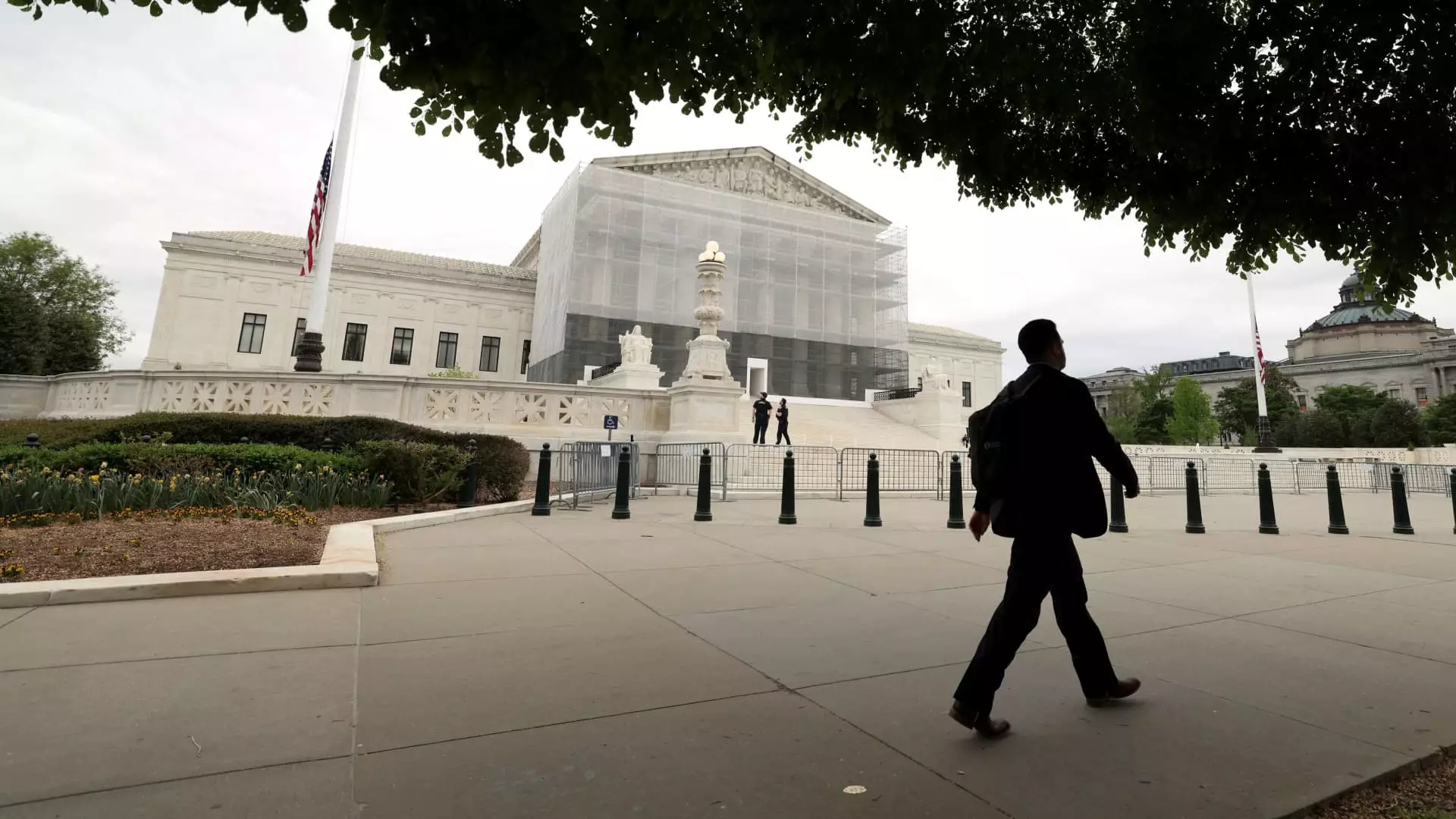The recent ruling by the Supreme Court regarding the deportation of Venezuelan nationals sheds light on the alarming intersection of immigration policy and civil liberties. By granting an injunction against the removal of these individuals under the Alien Enemies Act, the justices articulated a fundamental truth: the government’s procedures in such matters must balance national security with the constitutional rights of detainees. With a narrow 7-2 vote, the court expressed concern over the Trump administration’s mishandling of due process for these individuals. In a world where immigration laws are increasingly weaponized, the ruling serves as a crucial reminder of the inherent dignity owed to all individuals, regardless of their origins or perceived affiliations.
The Reality of Expedited Deportations
Under the Trump administration, the Alien Enemies Act was invoked as a legal tool to expedite the removal of individuals from the country, particularly those alleged to be associated with criminal organizations like the Venezuelan gang, Tren de Aragua. This strategy, purportedly rooted in the need for national security, overlooks the basic human rights of those affected. The court’s ruling underlined that providing notice of imminent deportation a mere 24 hours in advance, coupled with a lack of sufficient resources to challenge such actions, is utterly unjustifiable. Such an approach undermines the very essence of what justice should encompass. Fast-tracking deportations without granting the affected individuals a fair opportunity to contest their status is a direct affront to the principles of due process.
An Underlying False Narrative
Critically, the rhetoric surrounding the Trump administration’s use of the Alien Enemies Act often paints a skewed portrayal of Venezuelan nationals as an intrinsic threat. This narrative caricatures them as enemies of the state rather than acknowledging them as human beings fleeing oppression and violence. The proclamation categorizes anyone over the age of 14 who is alleged to be affiliated with Tren de Aragua as a threat, thus justifying their removal. This blanket approach not only fails in its moral responsibility but also disregards the complexities of individual situations, leading to potentially disastrous outcomes for innocent individuals caught in the crosshairs of an overly aggressive legal framework.
The Dissenting Voices of the Judiciary
Justices Samuel Alito and Clarence Thomas, dissenting from the majority opinion, raised legitimate questions about the urgency of the detainees’ situation and suggested the lower courts had not been inactive in handling the case. However, this dissent invites a dangerous precedent; it risks validating the rapid, often reckless, policies that have defined current immigration practices. By dismissing the majority’s call for just treatment as mere “characterization,” they diminish the serious implications of their counterarguments. It reminds us that the judiciary must be vigilant, as it is often the last bastion against flagrant abuses of power.
The Need for Reform
This case highlights a broader problem in U.S. immigration policy—a need for comprehensive reform that remains sensitive to human rights while appropriately balancing national security interests. The emphasis should not merely be on the expediency of deportations but rather ensuring just and fair processes for all individuals, especially when lives hang in the balance. The Supreme Court’s phraseology, stating the government must pursue national security “in a manner consistent with the Constitution,” underscores the imperative need for a reevaluation of current practices.
A Call for Compassionate Policy
Ultimately, the treatment of Venezuelan nationals should be a call to conscience. The moral fabric of this nation is tested when vulnerable populations are subjected to punitive measures without proper judicial consideration. Advocating for a more compassionate immigration policy, one that prioritizes rehabilitation and asylum over punitive action, aligns with the values of a society committed to justice and humanity. As the Fifth Circuit prepares to revisit this case, it ought to reflect not only on the legality of the procedures but also on the ethical implications of the policies they so wield.



Leave a Reply